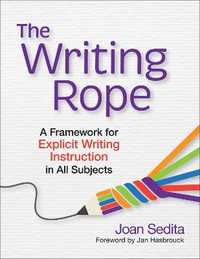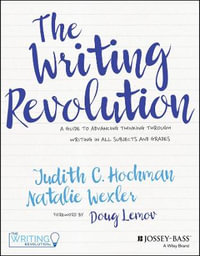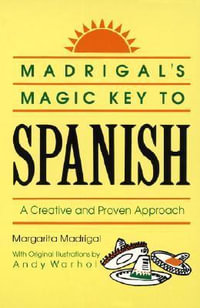We all know what frak, popularized by television's cult hit Battlestar Galactica, really means. But what about feck? Or ferkin? Or foul--as in FUBAR, or "Fouled Up Beyond All Recognition"?
In a thoroughly updated edition of The F-Word, Jesse Sheidlower offers a rich, revealing look at the f-bomb and its illimitable uses. Since the fifteenth century, no other word has been adapted, interpreted, euphemized, censored, and shouted with as much ardor or force; imagine Dick Cheney telling Democratic Senator Patrick Leahy to "go damn himself" on the Senate floor--it doesn't have quite the same impact as what was really said. Sheidlower cites this and other notorious examples throughout history, from the satiric sixteenth-century poetry of James Cranstoun to the bawdy parodies of Lord Rochester in the seventeenth century, to more recent uses by Ernest Hemingway, Jack Kerouac, Ann Sexton, Norman Mailer, Liz Phair, Anthony Bourdain, Junot Diaz, Jenna Jameson, Amy Winehouse, Jon Stewart, and Bono (whose use of the word at the Grammys nearly got him fined by the FCC).
Collectively, these references and the more than one hundred new entries they illustrate double the size of The F-Word since its previous edition. Thousands of added quotations come from newly available electronic databases and the resources of the OED, expanding the range of quotations to cover British, Canadian, Australian, New Zealand, Irish, and South African uses in addition to American ones. Thus we learn why a fugly must hone his or her sense of humor, why Canadian Prime Minister Pierre Trudeau muttered "fuddle duddle" in the Commons, and why Fanny Adams is so sweet. A fascinating introductory essay explores the word's history, reputation, and changing popularity over time. and a new Foreword by comedian, actor, and author Lewis Black offers readers a smart and entertaining take on the book and its subject matter.
Oxford dictionaries have won renown for their expansive, historical approach to words and their etymologies. The F-Word offers all that and more in an entertaining and informative look at a word that, while now largely accepted as an integral part of the English language, still confounds, provokes, and scandalizes.
Industry Reviews
"Sheidlower's 'The F Word' has provided inordinate delight and distraction from my normal working day."--The New Yorker
"It wasn't so long ago that the dear old F-bomb was barely uttered outside of private conversation, let alone written into literature or film or television. Here to educate you on its illustrious lineage--not to mention its present and future--is The F Word, a handsome, concise and erudite history of the term."--Very Short List
"Funny, yet surprisingly informative... The F Word is an encyclopedia for all things, well, f***ed."--Entertainment Weekly
"God bless lexicographers, you know? The F-Word is no thin bathroom book, either, but a meticulously researched 320-page hardcover reference tome, robust enough to sit alongside the OED." --SF Weekly
"The F Word is a gem in its lexicographical expertise and its scholarly explication. There will be nothing better, at least until Jesse Sheidlower produces a fourth edition."--Jonathon Green, editor of Chambers Slang Dictionary
"A thoroughgoing exploration of the most celebrated verb/noun/adjective/adverb/interjection/infix in English, with ample citations of its use over the past five and a half centuries."--John McIntyre, You Don't Say blog
"Sheidlower's introduction undertakes a swift and no-nonsense debunking of some common myths about the word...This is vulgarity at its most erudite."--Inside Higher Ed
"The detailed lexicon of the word's many uses and compounds is fascinating."--Milwaukee Shepherd Express
"Investigat[es] every possible combination, situation, and divagation in which the most notorious expletive in English can be found. For a word that can't be printed in most newspapers, it's certainly leading a rich, full life." --Erin McKean, Boston Globe
"A must for anyone interested in the most notorious of English obscenities. This is not one of those pro forma 'revisions' that correct a few errors, toss in a few added items, and add a new preface; the text of the dictionary is twice as large as the second edition, over a hundred new words and senses have been added, and it now aims to cover the entire English-speaking world. This book makes me proud to be a part of a civilization that could produce such a
thing." --Stephen Dodson, The Millions









![Collins Easy Learning Complete French Grammar, Verbs and Vocabulary (3 Books In 1) [2nd Edition] : Collins Easy Learning French - Collins Dictionaries](https://www.booktopia.com.au/covers/200/9780008141721/5905/collins-easy-learning-complete-french-grammar-verbs-and-vocabulary-3-books-in-1-2nd-edition-.jpg)





![Collins English Dictionary Complete and Unabridged Edition [14th Edition] : More Than 730,000 Words Meanings and Phrases - Collins Dictionaries](https://www.booktopia.com.au/covers/200/9780008511340/0814/collins-english-dictionary-complete-and-unabridged-edition-14th-edition-.jpg)








